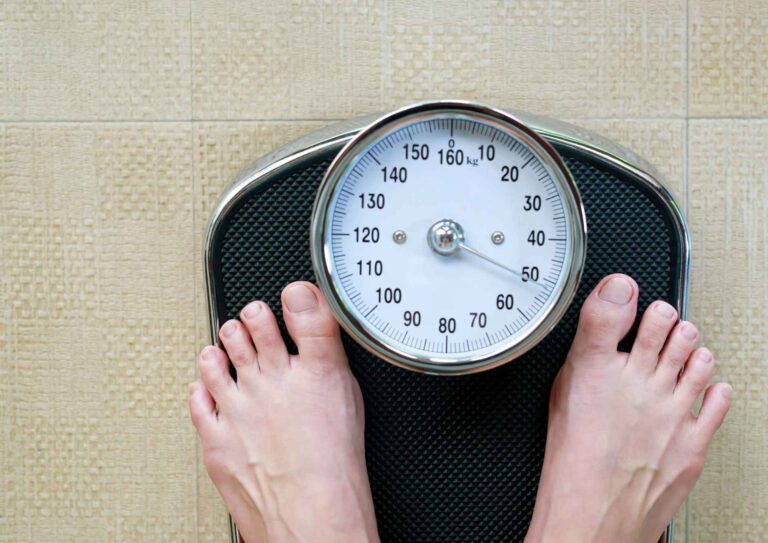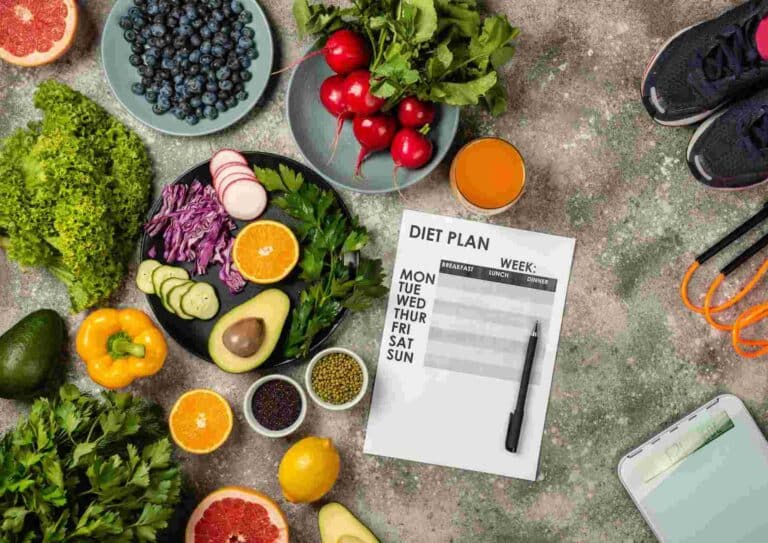What Is Sustainable Weight Loss?

The clinically proven path to long-term weight Loss without restriction. What is sustainable weight loss?
If you’ve ever asked yourself “Why do I keep regaining weight after every diet?” — you’re not alone. The truth is, most weight loss methods are designed to fail. They rely on restriction, willpower, and short-term compliance. But sustainable weight loss is different. It’s not a diet. It’s a system. One that works with your metabolism, not against it.
As an sustainable weight loss nutritionist based in Sydney, I work with clients who are tired of yo-yo dieting, metabolic burnout, and cookie-cutter advice. They’ve tried keto, intermittent fasting, calorie counting — and none of it stuck. Not because they failed. Because the system failed them.
I specialise in sustainable weight loss — the kind that doesn’t wreck your metabolism, mess with your hormones, or leave you obsessing over every bite. My approach is clinical, evidence-based, and tailored to the individual. No generic meal plans. No starvation. Just results that last.
I’ll walk you through exactly what sustainable weight loss is, why most diets fail, and how to build a fat loss system that works for your body — not against it.

What is sustainable weight loss? What you will learn:
Introduction: The Problem Isn’t You — It’s the System
Every week, I speak with clients who feel defeated. They’ve tried keto, calorie counting, fasting, detoxes — and none of it stuck. Not because they lacked discipline. But because they were sold a system designed to fail.
In Sydney and across Australia, we’re bombarded with quick-fix diets, 8-week shred programs, and influencer meal plans that promise rapid results. But the data tells a different story:
- A review of 29 studies found that 80% of people regain the weight they lost within 5 years
- Extreme restriction leads to metabolic slowdown, hormonal disruption, and rebound eating
- Only 20% of people with obesity successfully maintain long-term weight loss
This isn’t a willpower issue. It’s a systems issue.
As a sustainable weight loss nutritionist, I specialise in sustainable weight loss — the kind that protects your metabolism, supports your hormones, and builds habits that last. This guide isn’t about dieting harder. It’s about understanding how to lose fat in a way that’s clinically sound, psychologically supportive, and metabolically protective.
If you’ve ever asked yourself:
“Why do I keep regaining weight?”
“Why does dieting feel harder each time?”
“Is there a way to lose fat without wrecking my energy or sleep?”
You’re in the right place.

Defining Sustainable Weight Loss
Sustainable weight loss is the process of reducing body fat in a way that’s:
Gradual (0.5–1kg/week)
Maintainable long-term
Supportive of metabolic and hormonal health
Built on behavioural change, not restriction
It’s not about cutting carbs or fasting until noon. It’s about building a system that works for your body, your lifestyle, and your psychology.
According to Healthline, sustainable weight loss is achieved through eating pattern changes and behavioural shifts that are maintainable over time.

Why Most Diets Fail (And What Actually Works)
Crash diets fail because they:
Create large calorie deficits
Disrupt hunger hormones (ghrelin, leptin)
Reduce lean mass
Increase cravings and binge risk
A review of 29 studies found that 80% of people regain the weight they lost within 5 years. Sustainable weight loss avoids this by:
Prioritising protein and fibre
Supporting thyroid and insulin function
Building habits that survive stress and travel

The Metabolic Science Behind Sustainable Fat Loss
Your metabolism adapts to stress, food intake, and movement. Sustainable weight loss protects it by:
Avoiding starvation
Preserving lean mass
Supporting insulin sensitivity
Key markers:
| Marker | Benefit |
|---|---|
| Fasting insulin | Improved fat burning |
| Leptin | Regulated hunger |
| T3 thyroid hormone | Maintained energy |
| CRP (inflammation) | Reduced systemic stress |
Studies show that gradual weight loss improves metabolic outcomes more reliably than rapid loss.

Hormonal and Psychological Benefits
Sustainable weight loss improves:
Sleep quality
Mood stability
Energy levels
Emotional eating patterns
It also protects:
Cortisol (stress hormone)
Ghrelin (hunger hormone)
Leptin (satiety hormone)
Thyroid hormones (T3, T4)
According to Prime Wellness, sustainable weight loss is about habit formation, mindful eating, and realistic goal setting.

Nutrition Principles for Long-Term Success
Forget calorie counting. Focus on:
Protein-rich meals (25–30g per meal)
Wholefood carbs for thyroid and mood
Fibre for satiety and blood sugar
Electrolytes for hydration and cravings
Meal timing aligned with circadian rhythm
Sample Day:
Breakfast: Eggs, avocado, sourdough
Lunch: Chicken salad with quinoa
Snack: Greek yoghurt with berries
Dinner: Salmon, sweet potato, greens

Red Flags and Common Pitfalls
Even well-intentioned people fall into traps that sabotage their fat loss goals. These behaviours may seem harmless — or even “healthy” — but they often backfire by disrupting hormones, slowing metabolism, and increasing rebound risk.
Here’s what to avoid:
Fasting until 2pm
Skipping breakfast and pushing your first meal into the afternoon may seem like a shortcut to calorie control, but it often leads to:
Elevated cortisol levels in the morning
Increased ghrelin (hunger hormone) by midday
Poor blood sugar regulation
Binge eating later in the day
A study published in Obesity found that consuming more calories earlier in the day improves insulin sensitivity and supports fat loss.
Cutting Carbs Completely
Low-carb diets can work short-term, but long-term restriction of wholefood carbohydrates can:
Suppress thyroid function (especially T3)
Reduce serotonin and mood stability
Impair workout recovery
Increase cravings and emotional eating
Wholefood carbs like sweet potato, quinoa, and fruit support metabolic flexibility and hormonal balance.
Overtraining
More isn’t always better. Excessive cardio or high-intensity training can:
Elevate cortisol chronically
Break down lean muscle
Increase appetite and fatigue
Disrupt sleep and recovery
Sustainable fat loss prioritises resistance training, walking, and recovery — not punishment.

Ignoring Sleep
Sleep is non-negotiable. Poor sleep:
Increases ghrelin and decreases leptin
Impairs glucose tolerance
Reduces motivation and energy
Increases cravings for sugar and fat
Aim for 7–9 hours of quality sleep per night. According to Body Network, sleep is “vital for both physical and mental health” and directly impacts fat metabolism.
Relying on Caffeine Instead of Food
Using coffee or energy drinks to suppress appetite or boost energy can:
Mask true hunger signals
Disrupt adrenal function
Increase anxiety and sleep disruption
Lead to nutrient deficiencies
Food is fuel. Caffeine is a tool — not a substitute.
Comparing Your Journey to Others
Comparison leads to unrealistic expectations and self-sabotage. Your metabolism, history, and lifestyle are unique. Sustainable weight loss is about:
Progress, not perfection
Consistency, not competition
Building habits that work for you
As highlighted by Zee News, focusing only on exercise or external metrics can derail your journey.

Bibliography
Cleo, G., Beller, E., Glasziou, P., Isenring, E., & Thomas, R. (2020). Efficacy of habit-based weight loss interventions: A systematic review and meta-analysis. Journal of Behavioral Medicine, 43(4), 519–532. https://doi.org/10.1007/s10865-019-00100-w
Hunger, J. M., Smith, J. P., & Tomiyama, A. J. (2020). An evidence-based rationale for adopting weight-inclusive health policy. Social Issues and Policy Review, 14(1), 73–107. https://doi.org/10.1111/sipr.12062
Leidy, H. J., Clifton, P. M., Astrup, A., Wycherley, T. P., Westerterp-Plantenga, M. S., Luscombe-Marsh, N. D., Woods, S. C., & Mattes, R. D. (2015). The role of protein in weight loss and maintenance. The American Journal of Clinical Nutrition, 101(6), 1320S–1329S. https://doi.org/10.3945/ajcn.114.084038
Jakubowicz, D., Barnea, M., Wainstein, J., & Froy, O. (2013). High caloric intake at breakfast vs. dinner differentially influences weight loss of overweight and obese women. Obesity, 21(12), 2504–2512. https://doi.org/10.1002/oby.20460
Chaput, J. P., Després, J. P., Bouchard, C., & Tremblay, A. (2007). Short sleep duration is associated with reduced leptin levels, elevated ghrelin levels, and increased body mass index. PLoS Medicine, 4(3), e62. https://doi.org/10.1371/journal.pmed.0040062
Hall, K. D., Sacks, G., Chandramohan, D., Chow, C. C., Wang, Y. C., Gortmaker, S. L., & Swinburn, B. A. (2011). Quantification of the effect of energy imbalance on bodyweight. The Lancet, 378(9793), 826–837. https://doi.org/10.1016/S0140-6736(11)60812-X
Sacks, F. M., Bray, G. A., Carey, V. J., Smith, S. R., Ryan, D. H., Anton, S. D., McManus, K., Champagne, C. M., Bishop, L. M., Laranjo, N., Leboff, M. S., Rood, J. C., de Jonge, L., Greenway, F. L., Loria, C. M., & Williamson, D. A. (2009). Comparison of weight-loss diets with different compositions of fat, protein, and carbohydrates. New England Journal of Medicine, 360(9), 859–873. https://doi.org/10.1056/NEJMoa0804748












